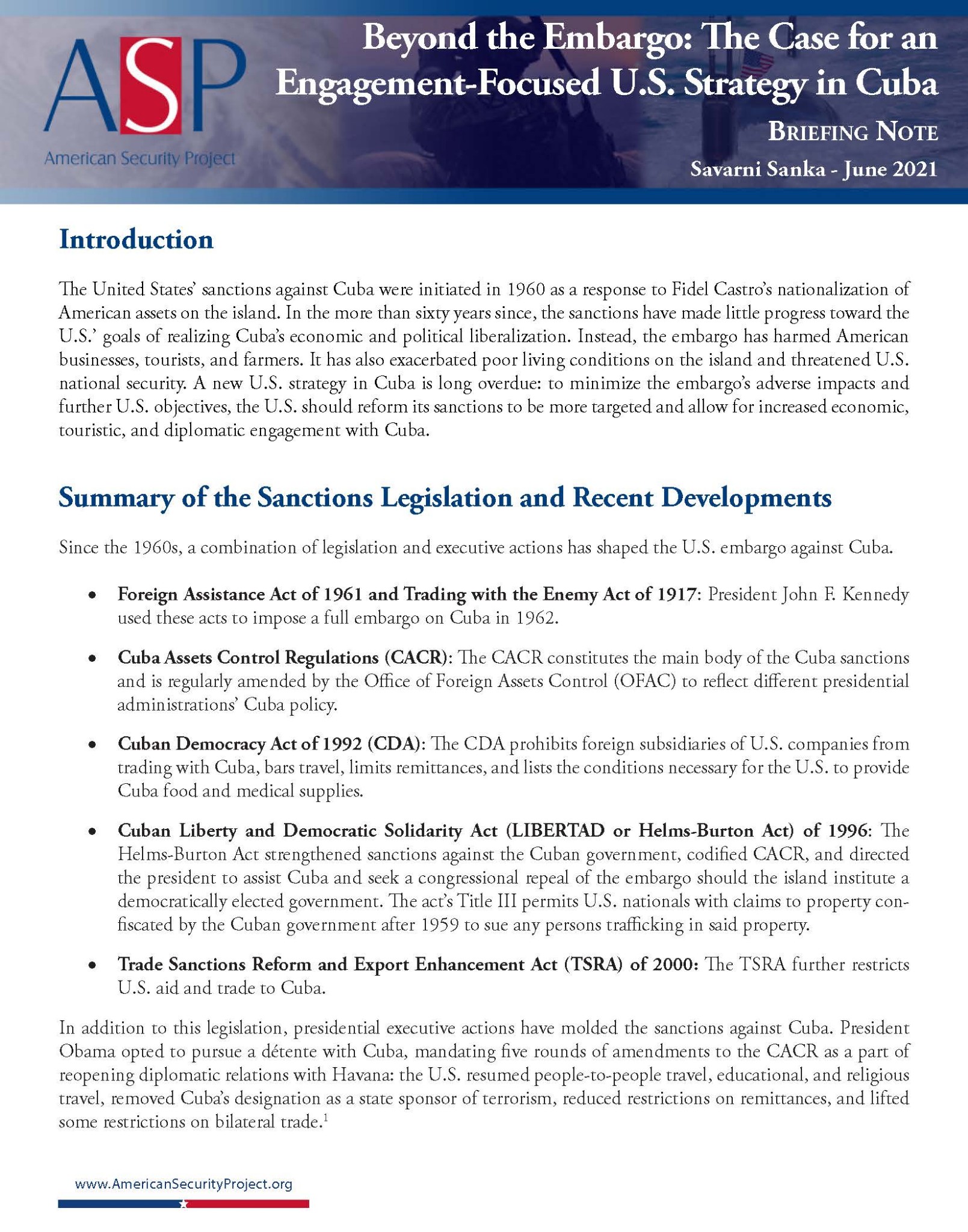
Briefing Note – The Case for an Engagement-Focused U.S. Strategy in Cuba
The United States’ sanctions against Cuba were initiated in 1960 as a response to Fidel Castro’s nationalization of American assets on the island. In the more than sixty years since, the sanctions have made little progress toward the U.S.’ goals of realizing Cuba’s economic and political liberalization. Instead, the embargo has harmed American businesses, tourists, and farmers. It has also exacerbated poor living conditions on the island and threatened U.S. national security. A new U.S. strategy in Cuba is long overdue: to minimize the embargo’s adverse impacts and further U.S. objectives, the U.S. should reform its sanctions to be more targeted and allow for increased economic, touristic, and diplomatic engagement with Cuba.
DownloadBriefing Note – Beyond the Embargo: The Case for an Engagement-Focused U.S. Strategy in Cuba by The American Security Project on Scribd





